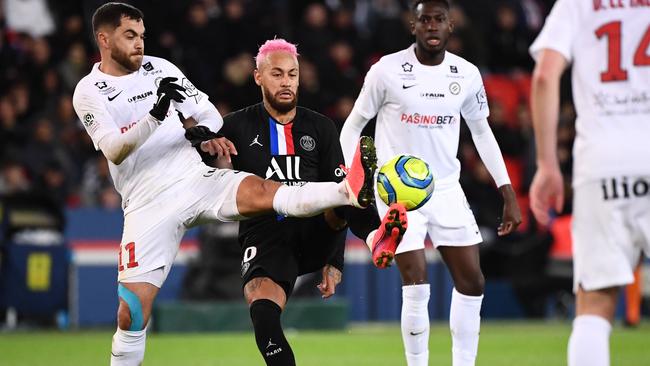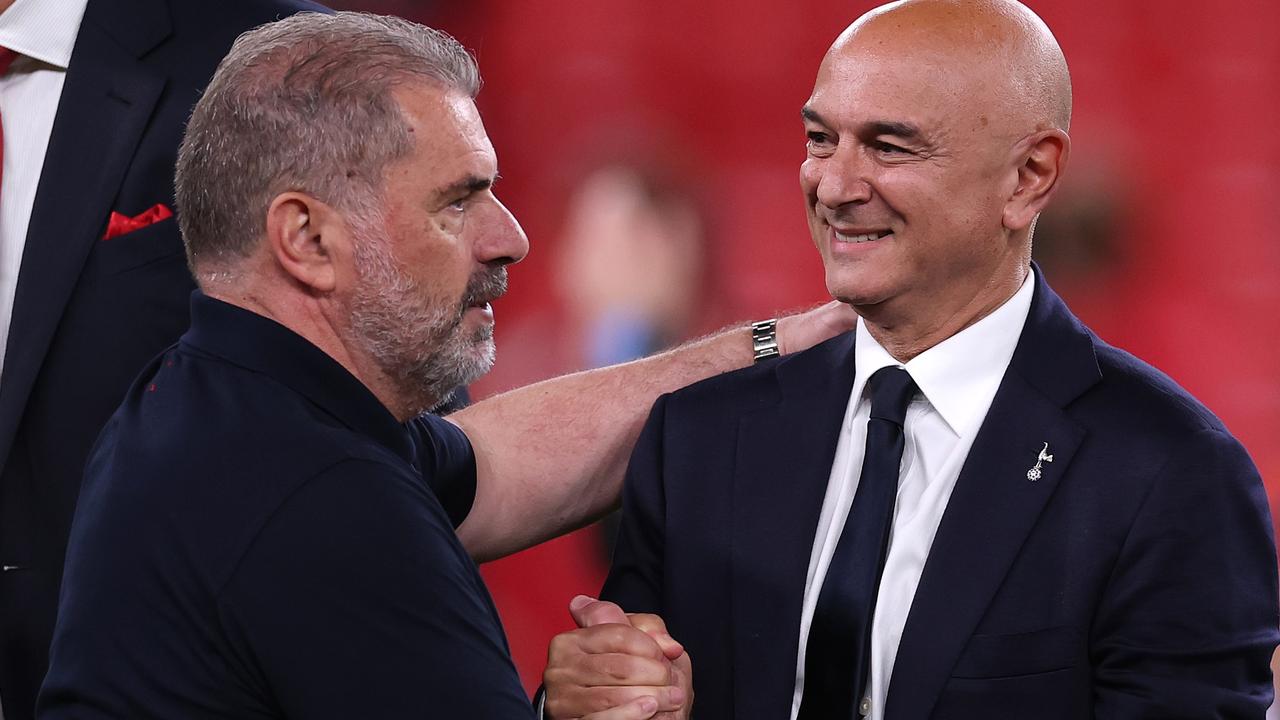Neymar’s flourishes enrich the game and should be encouraged
The referee’s intervention after Neymar’s rainbow flick shows the game’s custodians have it in for the mercurial Brazilian.

It was in the 37th minute of Paris Saint-Germain’s 5-0 win over Montpellier that Neymar contravened football’s unwritten moral code. Shepherded towards the corner flag, with two defenders blocking his path, the Brazilian trapped the ball between his ankles, and attempted to flick it over the heads of his opponents. To some, such an impudent display of skill oversteps the mark, and is disrespectful, even provocative. The move is known as the rainbow flick, only this rainbow doesn’t have a pot of gold at the end of it, but a lot of scold.
It’s not the first time that Neymar has been in trouble for showboating. A year ago he was widely criticised for making a pass with his back in a 9-0 win against Guingamp, then for subjecting the Strasbourg midfielder Moataz Zemzemi to another rainbow flick. This time though, it wasn’t just the serial tut-tutters of the commentariat who upbraided Neymar: the referee, Jerome Brisard, gave him a stern warning, much to the forward’s displeasure. The self-appointed custodians of the game’s spirit have got it in for Neymar; now football’s official law-enforcement arm is clamping down on his box of tricks.
You can see this debate as a clash between the ideals of liberte and fraternite. On one side, the argument goes that subjecting your opponents to this sort of trickery entails the humiliation of fellow professionals, straining football’s sacred bonds of brotherhood. That view is held even by some of the game’s more sophisticated coaches.
The Strasbourg coach Thierry Laurey said of Neymar’s antics: “I understand if my players had enough of being mocked. When you exceed the limits, you have to take responsibility.” One may also recall Pep Guardiola giving Raheem Sterling a dressing-down for doing some gratuitous step-overs against Manchester United, or Phil Neville vowing from the Match of the Day sofa that he would have “smashed” Tomas Rosicky for having the temerity to play a no-look pass. For these men, it’s a matter of respect.
But a footballer’s individual freedom of expression, and their right to assert the professional artistry honed over many years, must be respected. As the former Monaco and PSG winger Jerome Rothen put it: “When you are so gifted technically like him, that’s what you do. When Neymar gets insulted and kicked throughout a game, his way of answering is by enjoying his football – doing tricks and showing that technically he is better than everyone else.”
You could argue that Neymar’s flamboyant flicks are provocative. But then impudence is part of football. Elite sport is the descendant of the gladiatorial games that thrilled audiences in Roman times. Vaunting is ingrained in its DNA. There are other arenas of public life where we can indulge our cherished moral niceties. There are not many where we can experience the primal frisson of human combat.
You could argue that Neymar’s tricks are indulgent, the fripperies of a show pony more interested in flaunting his own repertoire than helping his team. But I don’t think that’s true.
Neymar is an incredibly efficient footballer. In 14 games in Ligue 1 this season, he has scored 13 goals and recorded six assists. He’s an assassin disguised as a magician. And in this instance, there was a clear logic to his deployment of this particular skill: hemmed in on the touchline, with two defenders advancing on him in a sort of pincer movement, Neymar’s only escape route was to try to send the ball in an arc over his pursuants, then race to catch up with it on the other side.
The execution may have looked ostentatious, but the theory behind it was rational.
In general, football is becoming more and more about collective scheme and less and less about individual improvisation. In the Premier League, the number of passes a team play per game has risen steadily over the last decade from 386 in 2009-10 to 457 this season. At the top level, the game is increasingly dependent on rehearsed, synchronised attacking movements. But in the age of the symphony orchestra, there must still be a place for the jazz solo. Acts of individual flair like Neymar’s are important because they provide an umbilical link to the game that is played in playgrounds and five-a-side courts.
Above all, of course, football is entertainment. We go to the stadium to gawp at virtuoso acts of physical skill, to marvel at things that we couldn’t do, to see players push the boundaries of imagination as well as athleticism. Football remains, in essence, a spectacle. It should not be hostile to players who attempt the spectacular.
The Times



To join the conversation, please log in. Don't have an account? Register
Join the conversation, you are commenting as Logout